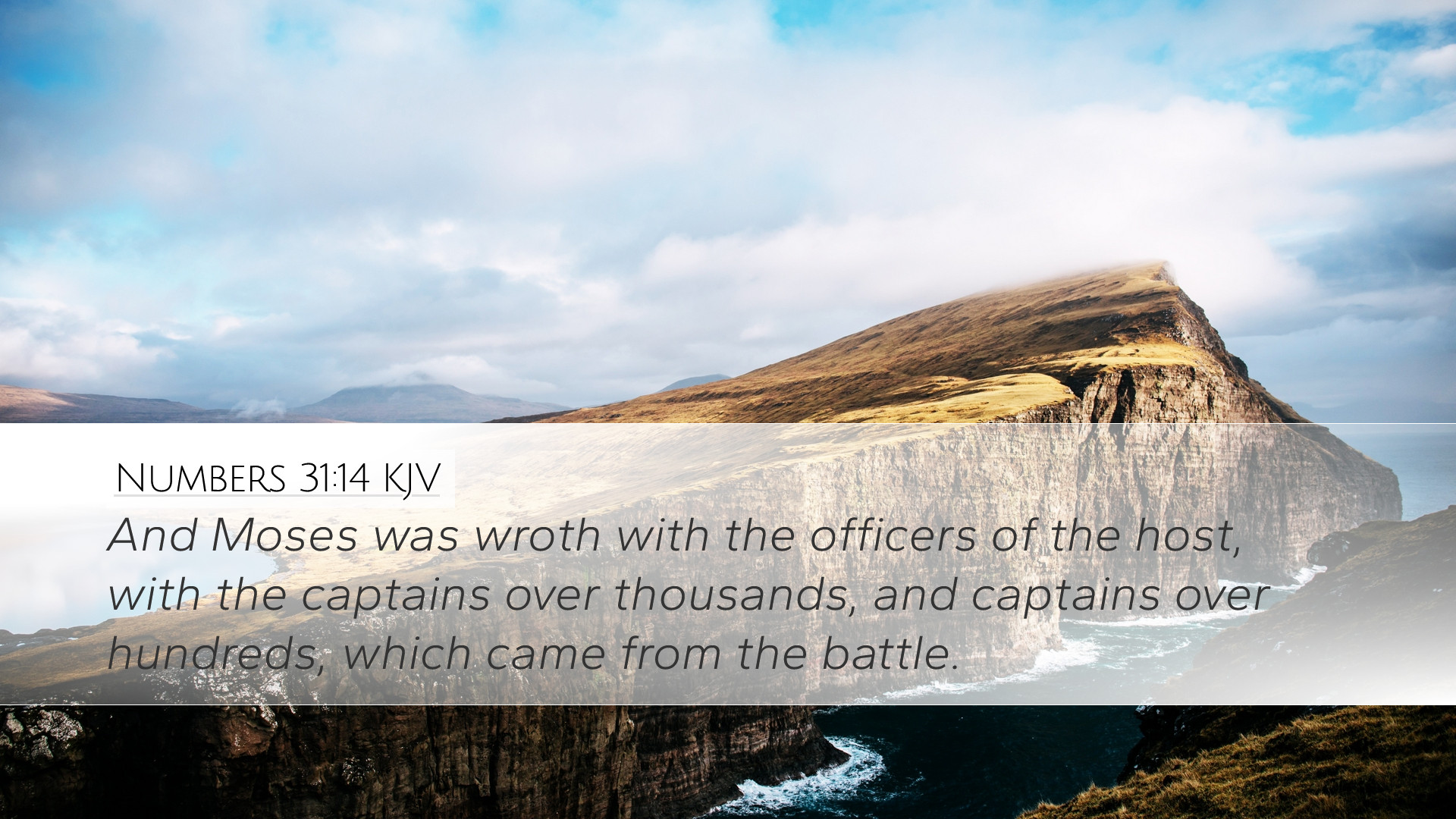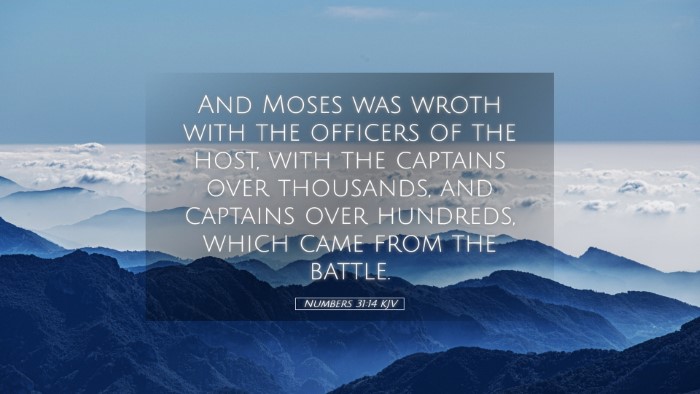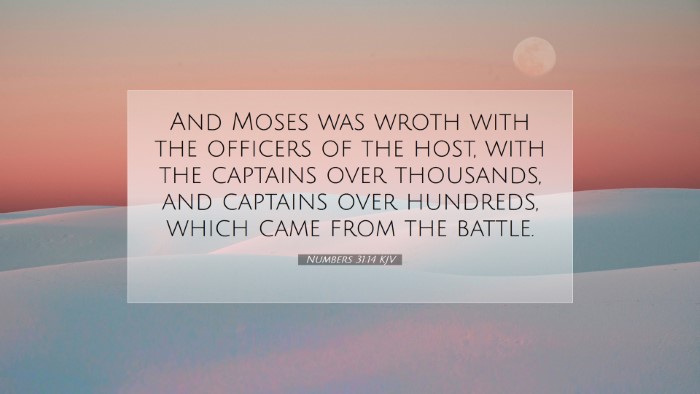Bible Verse: Numbers 31:14
“And Moses was wroth with the officers of the host, with the captains over thousands, and captains over hundreds, which came from the battle.”
Introduction
This verse from the Book of Numbers captures a moment of intense emotional response from Moses as he confronts the officers who have returned from the vengeance against Midian. The narrative here is critical as it sets the stage for understanding the seriousness of divine instruction and the consequences of human actions.
Moses' Anger: Contextual Insights
Moses’ anger can be understood through various lenses of biblical commentary. Albert Barnes notes that the anger of Moses stemmed from a perceived failure on the part of the leaders to completely follow God’s command (Barnes, Notes on the Bible). This suggests that the leaders may have been lax in their execution of God’s judgment against sin, focusing instead on the spoils of war.
The Importance of Obedience
Matthew Henry expands on this by emphasizing the necessity of strict adherence to God's commands. He observes that when God issues specific directions, any deviation not only invites the displeasure of the Lord but also jeopardizes the community’s standing before Him. Therefore, Moses' wrath serves as a reminder that leaders bear a great responsibility to uphold divine commands faithfully.
The Role of Leadership
Adam Clarke also touches on the accountability of leaders, stating that they influence not only their lives but those of the entire nation. Leaders are charged to act as representatives of God’s intent. Hence, Moses' response can be interpreted as a protective measure for the community, recognizing that the failure of a few can lead to corporate punishment.
Reflection on Divine Justice
The anger of Moses must also be seen in light of the theme of divine justice that resonates throughout Scripture. His reaction underscores the gravity of sin and the necessity of administering justice according to God's will. Henry remarks that God’s judgment against the Midianites was just, not merely for territorial gain, but rather as a form of corrective justice against their moral corruption (Henry, Commentary on the Whole Bible).
Lessons for Today
For pastors, students, and theologians today, Numbers 31:14 offers profound insights into the nature of righteous anger and the responsibilities of leadership. Here are key lessons derived from this verse:
- Accountability in Leadership: Leaders must be vigilant and adhere to God's instructions, understanding that their choices affect all.
- The Seriousness of Sin: Sin has consequences that often extend beyond individual actions, necessitating a robust stance against moral failures.
- Emotional Response to Sin: It is appropriate to experience anger towards sin, just as Moses did, but that anger must be directed towards constructive outcomes.
- Collective Responsibility: The community, including its leaders, shares in the moral and spiritual health and failures of its members.
Conclusion
The verse encapsulates significant theological and moral insights that remain relevant in contemporary settings. It invites reflection upon how leaders perceive and act towards sin within their communities. As they strive to reflect God's nature and uphold His commandments, the response of Moses serves as a reminder of the fierce protective love God has for His people and His desire for them to embody justice and righteousness.


